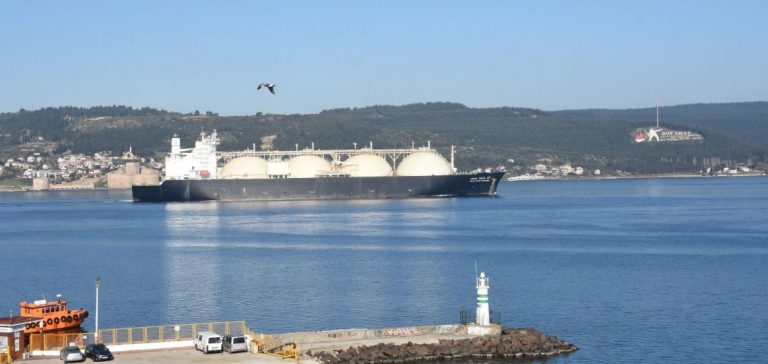Turkish Energy Minister Alparslan Bayraktar announced that Turkey is approaching a critical phase regarding its natural gas supplies in 2025/26, with several key import contracts set to expire, raising concerns about the country’s energy security. Among these contracts, the one with Russia’s Gazprom for 16 billion cubic meters per year delivered via the Blue Stream pipeline will expire at the end of 2025. Additionally, a contract with Iran for 9.6 billion cubic meters per year will expire in July 2026.
Faced with these expirations, Turkey is striving to diversify its gas supply sources to ensure continuity and affordability in its energy provisions. The minister emphasized that the country’s strategy focuses on two main objectives: supply security and affordability. To achieve this, Ankara has recently signed long-term liquefied natural gas (LNG) contracts with energy giants such as ExxonMobil, Shell, and TotalEnergies. These agreements aim to enhance the reliability of supplies for the Turkish market while ensuring competitive prices.
Major Import Contracts Expiring
The historic contract between the state-owned Turkish company Botas and Russia’s Gazprom, which allows the import of 16 billion cubic meters per year via the Blue Stream pipeline, is one of the primary agreements set to expire in 2025. Additionally, Botas imports 5.75 billion cubic meters per year of Russian gas through the TurkStream pipeline under annual, quarterly, and monthly spot deals, which also expire at the end of 2025. These two agreements represent a significant portion of Turkey’s gas supply.
Furthermore, Botas’s contract with Iran, covering the import of up to 9.6 billion cubic meters per year, will expire in July 2026. This situation is particularly concerning as several contracts held by Turkish private companies for importing Russian gas are also set to expire during the same period. For example, Enerco has a contract for 2.5 billion cubic meters per year expiring at the end of 2025, and Avrasya Gaz holds a contract for 0.5 billion cubic meters per year expiring in February 2026. However, neither company has imported significant gas since 2021, with only minimal quantities imported between 2019-2021.
Turkey’s Energy Diversification Strategy
Aware of these challenges, Minister Bayraktar indicated that Turkey is actively pursuing a policy of diversifying its energy supplies. The goal is not only to ensure the country’s energy security but also to keep natural gas affordable for consumers. In addition to the recent LNG contracts signed with ExxonMobil, Shell, and TotalEnergies, Turkey is exploring other options to diversify its sources, including increasing gas imports from Azerbaijan and developing its own gas resources.
The minister highlighted that Turkey is a growing market with increasing energy needs, making diversification even more crucial. He also mentioned that Turkey now has an import capacity of up to 80-85 billion cubic meters per year, compared to a national consumption of approximately 50 billion cubic meters per year. This provides the country with the flexibility to not only meet domestic demand but also become a key player in the regional gas trade.
Regional Gas Hub Project
As part of its energy strategy, Turkey is also considering the creation of an international gas hub. Minister Bayraktar stated that significant developments on this project are expected in the coming months. This hub would allow Turkey to leverage its strategic geographical position and infrastructure to become a natural gas trading center, facilitating the transit of gas to Europe.
Discussions have taken place with Gazprom, the Russian gas giant, regarding this hub project. In October 2022, Turkey and Russia agreed to collaborate on this proposal, and Gazprom submitted a draft roadmap to Botas for the hub’s implementation. However, the details on how the hub would operate remain to be clarified, although the main objective is to enable the trading of gas from multiple sources and its transit to European markets.
Current and Future Gas Import Capacities
Minister Bayraktar also highlighted Turkey’s current gas infrastructure capabilities. The country has pipeline connections with Azerbaijan, with a current capacity of 12.5 billion cubic meters per year, as well as a pipeline from its own Sakarya gas field. Additionally, Turkey has the capacity to import between 20 and 25 billion cubic meters of natural gas in the form of LNG.
This combination of supply sources places Turkey in a strong position to meet its growing domestic demand while playing a more significant role in the regional gas market. With import capacity exceeding consumption, Turkey can use this surplus to facilitate gas trade and strengthen its strategic position as an energy corridor between producers and consumers.
The imminent expirations of gas import contracts are prompting Turkey to rethink its energy strategy. By diversifying its supply sources and developing infrastructure to become a regional gas hub, the country aims to ensure its energy security while enhancing its position in the international gas market.





















